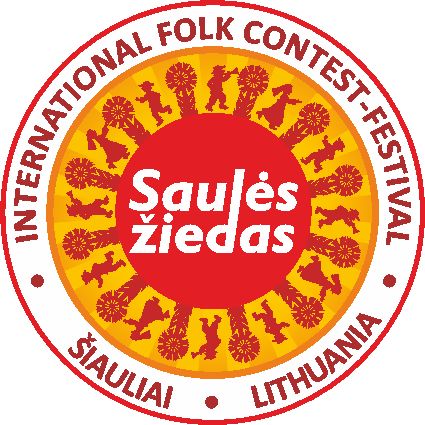The ensemble “Inkstiliuks” began its activity as a folk group in 1998 at Skaudvilė Gymnasium. Since 2010, they have been rehearsing at the Skaudvilė branch of the Tauragė Culture Centre, and since the end of 2024, following institutional reorganization, they have been based at the Skaudvilė Culture Centre.
The ensemble includes children and youth aged 5 to 19. They sing calendar, children’s, youth, and family folk songs, participate in expeditions, learn to play Samogitian kanklės (Baltic psaltery), tell folk stories, play circle games, dance, study calendar customs, and incorporate them into holiday celebrations.
The ensemble’s soloists, duets, trios, storytellers, kanklės players, and instrumental groups have participated annually in the national competition “Tramtatulis” since 2010: in 2021, a storyteller received a diploma, in 2023 one member reached the national round, and this year four performances qualified for the regional round (three solo participants and six instrumental group members). In 2018 and 2024, the ensemble participated in the Lithuanian Song Festivals in Vilnius with programs “Pasaka apie dūdsmuikį” (all ensemble members), “Labas rytas, mergyti” (featuring kanklės, dancers, and singers), and “Muzika buva didelia brangi” (featuring bandoneon players and dancers).
In 2018 and 2024, the ensemble was awarded Category II in the Amateur Arts Group classification.
The group participates in festivals in Lithuania and abroad (Poland – 2015, 2018) and organizes the Samogitian Regional Children and Youth Folklore Festival “Vasareli graži” in Skaudvilė (the next festival will be held in 2026).
The ensemble has its own traditional kapela (folk band) (directed by Rasa Bartkuvienė and Vytautas Krencius), which features bandoneons, violins, the basedlė (folk bass), and the Samogitian drum. The band has prepared a 30-minute program “Dances of Skaudvilė Region”, as well as programs for Shrovetide songs, orations, and games; “Rock Me, Rockers” (Easter and Easter Monday songs, games, egg-rolling, etc.); programs for Pentecost, Midsummer, Advent–Christmas songs and dances; youth and work songs; the program “Stories about Painkstalys Village” (based on historical material collected by Skaudvilė local Dainotas Habdangas); a joint program “Samogitian Wedding” with the amateur theater; a bread baking education program, harvest and milling songs in cooperation with the Skaudvilė Regional Museum; Christmas Eve superstitions and customs; porridge cooking education; straw ornament and garden making workshops; active folk games program; and, together with Skaudvilė cultural institutions, a culinary heritage presentation program “Im i met”.
The traditional kapela plays waltzes and polkas from the Skaudvilė musicians Aleksas Jokubauskas and Vytautas Krencius.
Ensemble members regularly participate in various Samogitian regional traditional dance evenings, active folk game nights, international ethnocultural nights, Tauragė district traditional dance evenings, the “Tauragė Regional Bandoneon” project (2019), and bandoneon projects and camps in Eržvilkas (Jurbarkas district) and Kelmė. They participate in festivals and events in Tauragė, Skaudvilė, nearby towns and villages, and community celebrations, as well as museum night events in Tauragė. Every year, they take part in almost all major cultural, educational folklore, and crafts events in Tauragė district.
In 2020–2021, the ensemble implemented the Tauragė Culture Centre’s project “Bandoneon of Skaudvilė Region.”
In 2023 and 2024, the ensemble’s kapela became laureates of the XII and XIII National Children and Youth Contest “Heritage of Traditions” and performed at the laureates’ concert at Vilnius Town Hall. In 2023, the ensemble organized an ethnocultural summer camp for its members “From the Past to the Present.”
They have also appeared in television, radio shows, and podcasts: LRT “Draugiška Lietuva” (2023), “Duokim garo” (2024 — twice), and Info TV (a documentary about intangible cultural heritage — the Tauragė Region Bandoneon).
Artistic directors: Rasa Bartkuvienė and Vytautas Krencius










